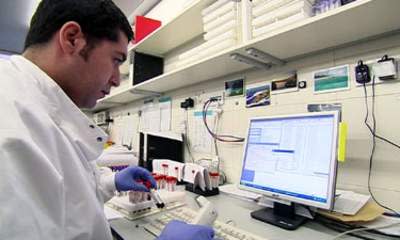Ovarian Cancer: Hopes Over UK Screening

Cancer charities are hoping that a new screening programme for ovarian cancer to save thousands of lives a year may be rolled out across the UK.
Known as the silent killer, ovarian cancer is responsible for the deaths of 4,500 women a year and is notoriously difficult to detect in the early stages when it is most responsive to treatment.
There is currently no national screening programme in the UK because the current blood test that is used often produces false results.
However, scientists in America say they have tweaked the tests to detect the cancer more accurately.
The trial at the University of Texas MD Anderson Cancer Centre in Houston showed it is possible to identify ovarian tumours correctly through a screening strategy of blood tests and ultrasound examinations.
Karen Lu, who is leading the research team, said: "The results from our study are not practice-changing at this time; however, our findings suggest that using a longitudinal (or change over time) screening strategy may be beneficial in post-menopausal women with an average risk of developing ovarian cancer.
"We are currently waiting for the results of a larger, randomised study currently being conducted in the United Kingdom that uses the same Risk of Ovarian Cancer Algorithm in a similar population of women.
"If the results of this study are also positive, then this will result in a change in practice."
Annie Mulholland, who was diagnosed with ovarian cancer in March 2011, told Sky News: "I had no symptoms of cancer but I felt unwell and went to doctors to find out why I was feeling a bit tired ... that was my fortune."
"Because there is no screening at the moment which is reliable the doctors have to wait until a woman presents."
She said the roll-out of a screening strategy like the one highlighted in the report would be "wonderful" news for thousands of women.
"If every singe woman over a certain age, perhaps 50 or over, would be screened routinely it would raise awareness of this particular cancer and it would also allow doctors to find out whether the woman is growing the cancer well before it's too late to cure."

 Yahoo Finance
Yahoo Finance 